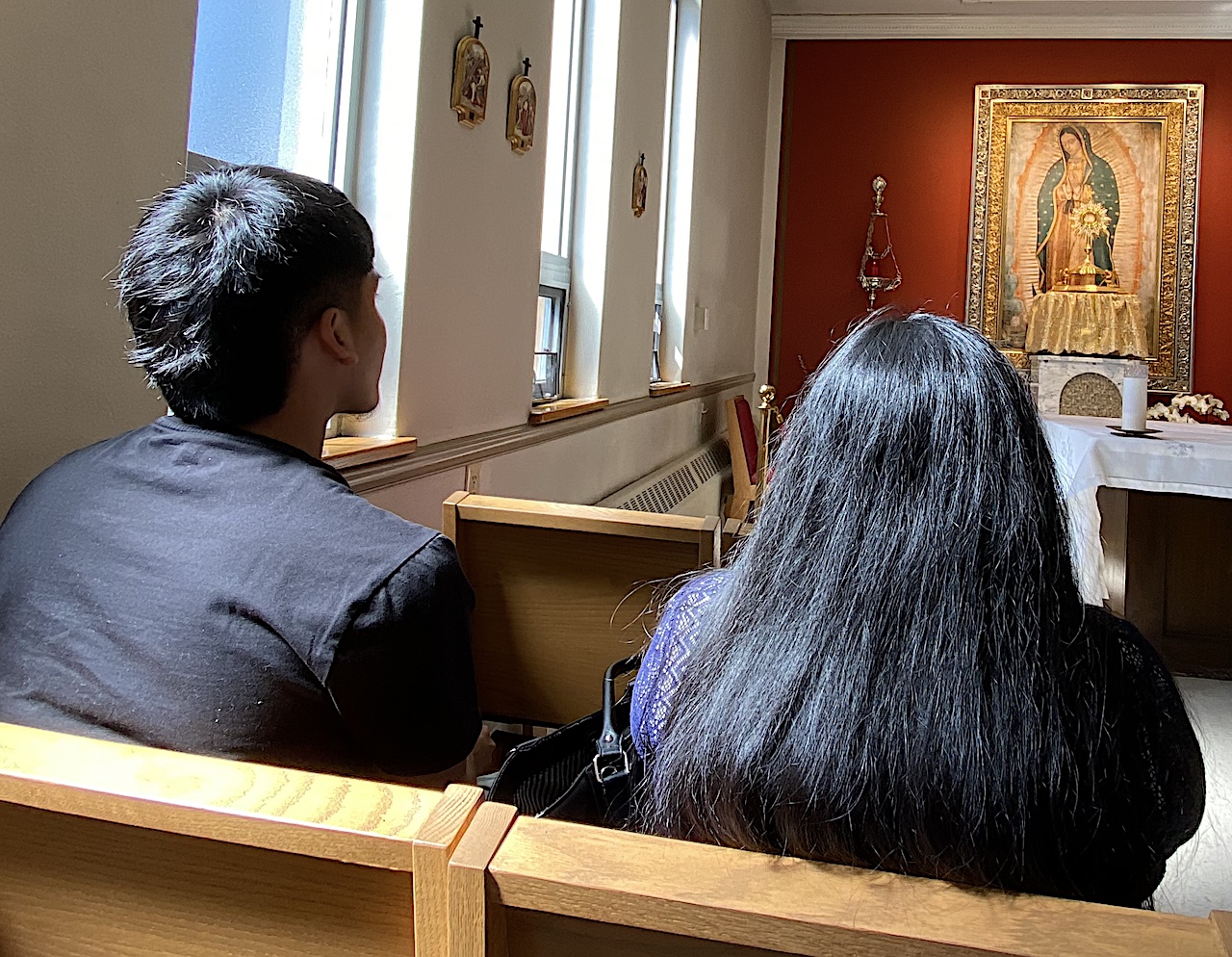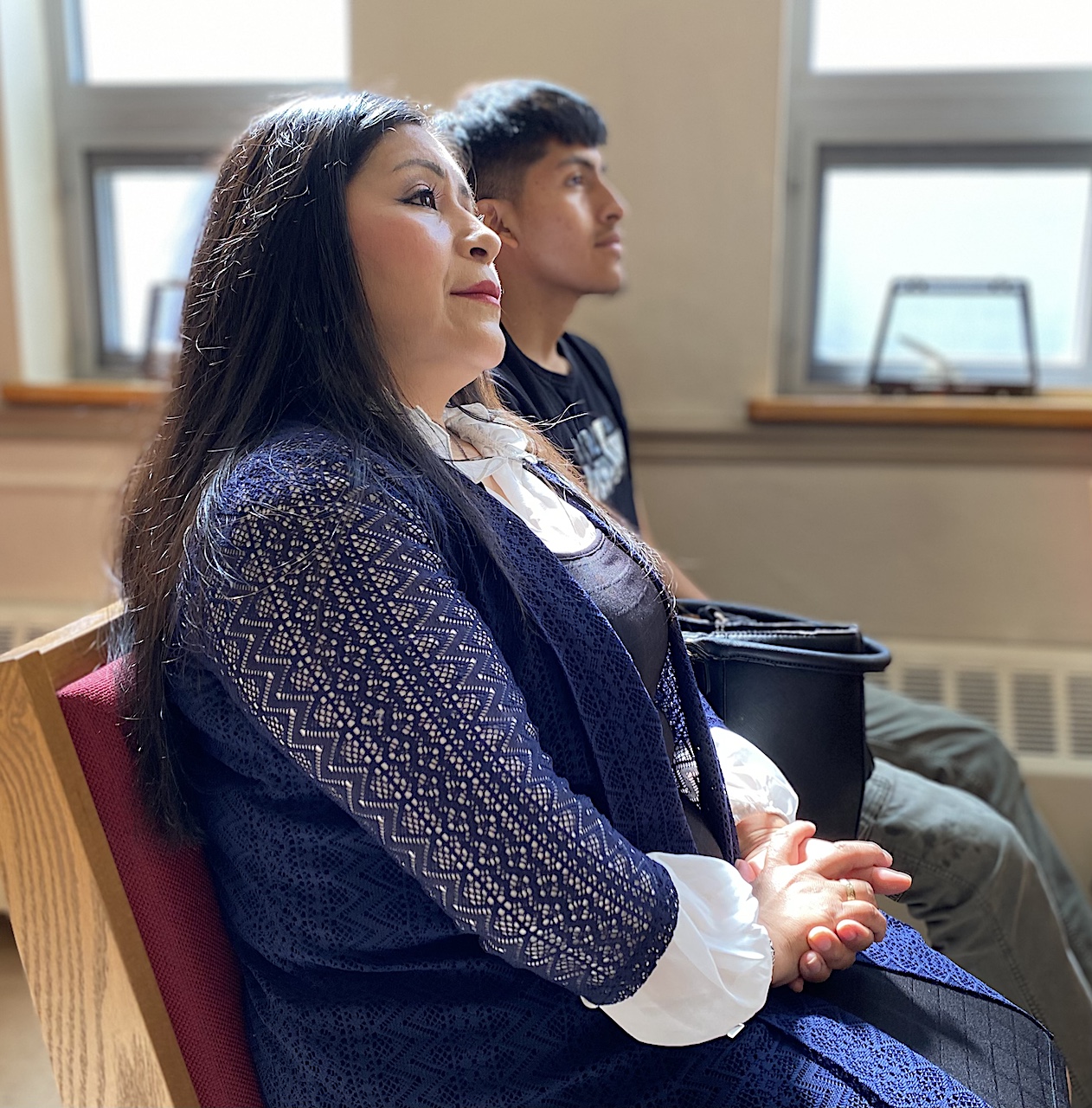
WOODSIDE — Two years ago, Victoria Chacho was desperate — and heartbroken.
The mother of four would often quarrel with her husband, Edgar, when he was drunk, and ultimately they separated. Afterward, she felt helpless, but as a lifelong Catholic, she loved the Lord, and knew that He is present in the Eucharist.
She sought His help through Eucharistic adoration in the Chapel of St. Philomena at Corpus Christi Church in Woodside. She felt inner peace whenever she prayed before the monstrance-encased host.
“Despite the sadness that I was going through, it allowed me to have happiness,” she said. “I could show people that you could persevere into the darkest times.”
Chacho described her experiences in Spanish while her 21-year-old son, Mike, her eldest child, interpreted. The family belongs to Our Lady of Fatima Church in East Elmhurst, but she visits the chapel in Woodside each Friday.
“My husband looked at me and decided to make a change for his life,” she said. “He completely cut out alcohol. And we are happily together ever since this February of 2024.”
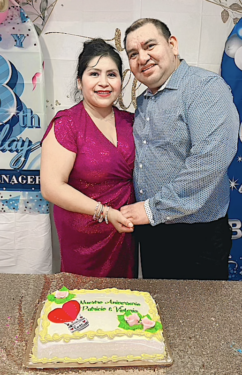
Msgr. Jonas Achacoso, the pastor of Corpus Christi, said many such miracles flow from the chapel, which has been open around the clock — with a few exceptions like the pandemic and Holy Week observances — for 15 years.
The chapel developed under the leadership of Father Peter Gillen, now the pastor at St. Brendan Church in Midwood, Brooklyn, Msgr. Achacoso said. Before the pandemic, he said, it was the only perpetual chapel for Eucharistic adoration in Queens — meaning the adoration is underway constantly.
Similar chapels have appeared at other parishes since the pandemic, like Our Lady of Sorrows in Corona. Still, people keep coming to this chapel in Woodside from all over Queens, but also Brooklyn and Manhattan, Msgr. Achachoso said.
The faithful — called “guardians” — sign up for shifts all hours of the day for adoration and overseeing other people coming and going. Entry is gained with a smartphone by scanning a QR code. This produces an access number to punch into a code box.
Anna Morales has been a guardian for 14 years.
“I have to be sure the next people come before I leave,” she said. “So, if nobody comes, I cannot leave with Our Lord alone.”
They represent diverse backgrounds — from illiterate to well-educated — dressed casually or in business attire. Their shared belief is the real presence of Christ.
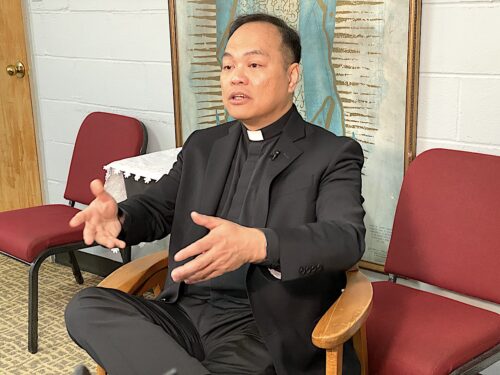
Msgr. Achacoso said this “fervor” was well underway before the current National Eucharistic Revival began three years ago.
The U.S. bishops commissioned the revival to reverse data showing that only a third of Catholics throughout the nation believe in Christ’s real presence in the Eucharist.
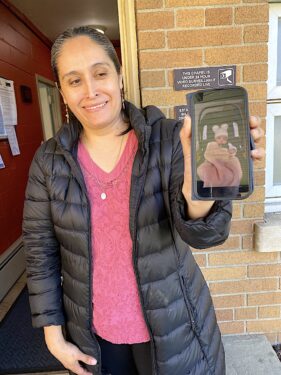
“These are our adorers,” Msgr. Achacoso said, flipping through pages of the logbook they must sign. “For various reasons they are coming here — to visit Our Lord, of course — and for different concerns in their lives.”
Personal miracles, he said, include addictions broken and marriages mended. Such is Chacho’s story, but she has more to tell.
“I feel the presence of Jesus,” she said of her visits. “He hugged me. I tell people, ‘You should come to the chapel because it could help you change your life. “I can never be too thankful for how much Jesus has changed my life. He is everything to me.”
Morales has been practicing adoration since her daughter, Elizabeth, was diagnosed with epilepsy. The right medication was prescribed, and the girl, now 18, is doing fine, her mother said.
But this experience gave Morales confidence to pray for her niece, Abigail, who last year endured a complicated pregnancy with twins. She said one of the babies died in the womb, and her niece was advised to abort the other child.
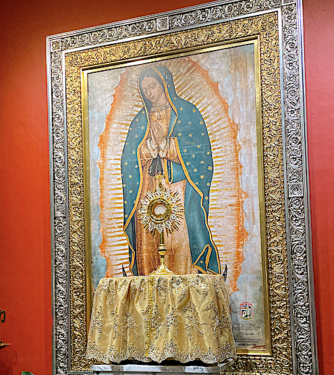
“She said, ‘No, I want to keep the baby — one baby alive,’” Morales said, wiping away tears. “So, I came into the adoration chapel and prayed, ‘God, you are the God of their life. Please take care of my niece and the baby.’ Thank God, the baby was born OK.”
Morales proudly showed a photo on her phone of her healthy grandniece, Mia, now four months old. The remains of the baby who died were not in the womb.
“It was two babies, and when the baby (Mia) was born, the other one had disappeared,” she said. “For me, it’s a ‘milagro’ [miracle].”
Morales said the feeling of the real presence of Christ is hard to describe.
“I can’t explain it,” she said. “But you’re feeling something is there — something waiting for you. And I love it. I want to come every week — one hour to stay with Him.”
